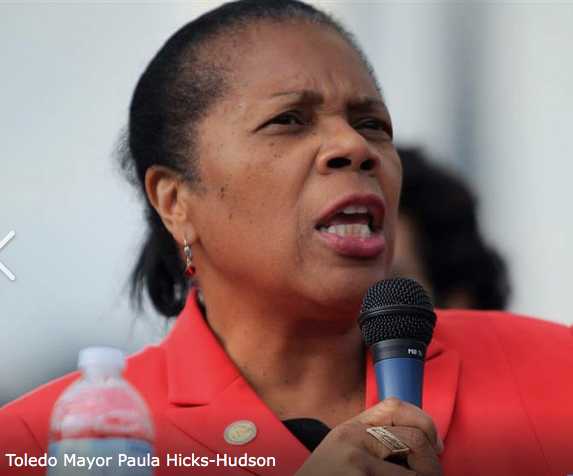We will have information at our hands that we don't have right now. Council, because council has to approve the spending that comes before us, this is going to give us a great tool to be able to understand where we want to allocate dollars." - City of Toledo Councilperson Sandy Spang
In an unprecedented public-private partnership, the Toledo Regional Chamber of Commerce is partnering with the City of Toledo, OH
 to bring Priority Based Budgeting (PBB) to Northwest Ohio. The Center
for Priority Based Budgeting is thrilled to join this partnership in
bringing PBB to the "Glass City!"
to bring Priority Based Budgeting (PBB) to Northwest Ohio. The Center
for Priority Based Budgeting is thrilled to join this partnership in
bringing PBB to the "Glass City!" The City of Toledo launched their Priority Based Budgeting initiative earlier this week.
The following article (Officials get first look at budget firm's process) was originally published by the Toledo Blade and written by Ignazio Messina.
Mayor hopes move will restore public’s faith in city government
The City of Toledo is spending money to save money. City council is changing the way they look at the budget hoping to save money in the end.
Toledo officials got their first look at a new way to budget
Wednesday, a process the Hicks-Hudson administration believes will help
restore the public’s faith in the municipal government.
The city has never done an “across-the-board” process determining
the costs for each program, Chief of Staff Mark Sobczak told a group of
high-ranking city employees. He made his comments before a webinar
with Colorado-based consultants hired to shepherd the city through a
review of its budgeting practices.
Toledo City Council unanimously voted last month to spend up to
$50,000 from the city’s general fund to hire the Center for Priority
Based Budgeting, of Englewood, Colo. The Toledo Regional Chamber of
Commerce contributed another $44,500 to help the city pay the firm’s
$94,500 anticipated bill.
“This is a very serious undertaking for us, but also an opportunity,” Mayor Paula Hicks-Hudson said.
The mayor said the process will help convince voters to renew the city’s temporary income tax.
The tax will be on the ballot in November, but the mayor has not
yet said whether she will ask for a renewal of the existing 0.75
percent income tax, an increase, or a combination that includes the
existing tax and an additional amount.
Voters in March rejected a 1 percent temporary tax to replace the 0.75 percent tax.
Mr. Sobczak said the 70-minute webinar, held at the University of
Toledo’s Driscoll Alumni Center, was “a good overview” of the program.
The Hicks-Hudson administration intends to identify the cost of all city programs and prioritize each, he said.
“Part of the process we learned in today’s exercise is to be in better communications with the citizens,” Mr. Sobczak said.
Eileen Granata, the city’s chief operating officer, said the group
will compile a database and produce a report after doing a series of
interviews with city officials, employees, and residents. It will
include recommendations and data that could be used to help create the
city’s 2017 budget, she said.
City Finance Director George Sarantou asked all city directors to start writing their budgets for 2017.
“Clearly, this process gets us thinking what are the important
things and how do we deliver those services in the most efficient
manner,” he said. “This is an exercise the city hasn’t been through,
and it was a great start.”
Mr. Sarantou said the process will include seeking input from the public.
Councilman Sandy Spang, who pushed for changing the city’s
budgeting process in her unsuccessful mayoral campaign last year, said
she has high hopes for the program. “If it is done with transparency,
it is going to be an opportunity for the public to be able to establish
priorities for spending,” she said. “I hope it will be a tool for the
city to achieve fiscal health and restore the public faith in the
budgeting process.”
The Center for Priority Based Budgeting
“A Prioritized World”
2016 Annual (Un)Conference

Denver, Colorado | August 2 - 4, 2016
Sheraton Denver Downtown Hotel



No comments:
Post a Comment